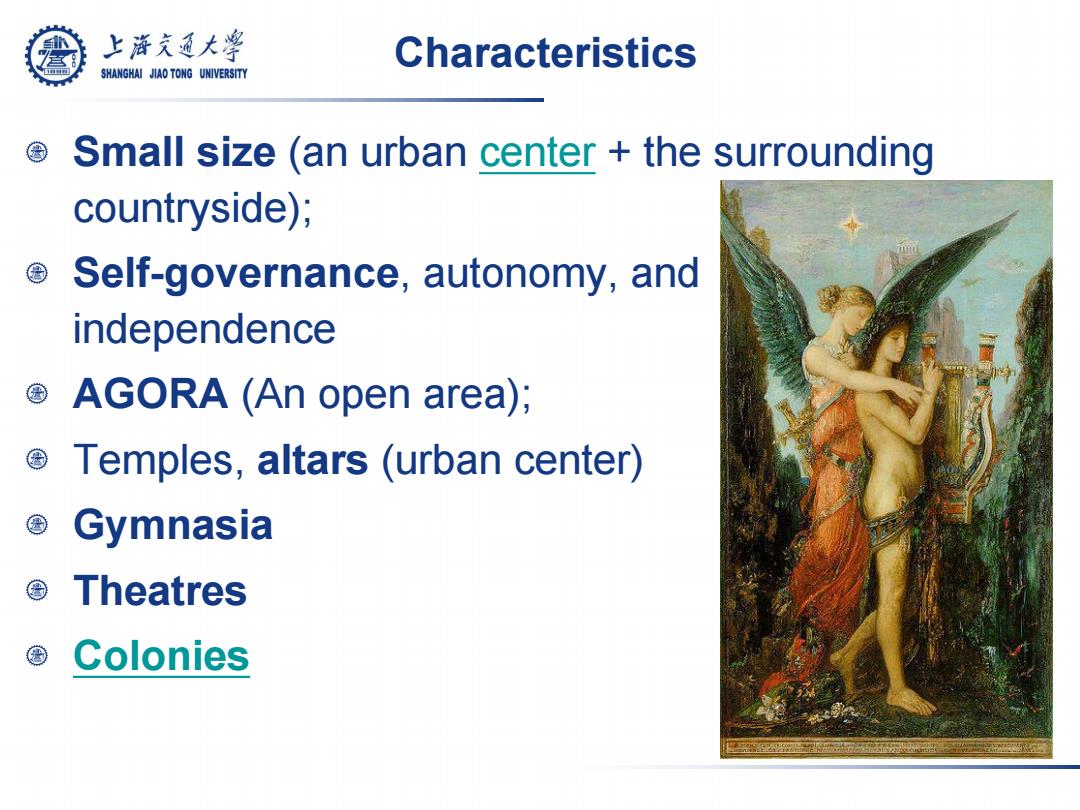
上游充通大兽 Characteristics SHANGHAI JIAO TONG UNIVERSITY Small size (an urban center the surrounding countryside); Self-governance,autonomy,and independence AGORA (An open area); Temples,altars (urban center) Gymnasia © Theatres 因 Colonies
Characteristics Small size (an urban center + the surrounding countryside); Self-governance, autonomy, and independence AGORA (An open area); Temples, altars (urban center) Gymnasia Theatres Colonies
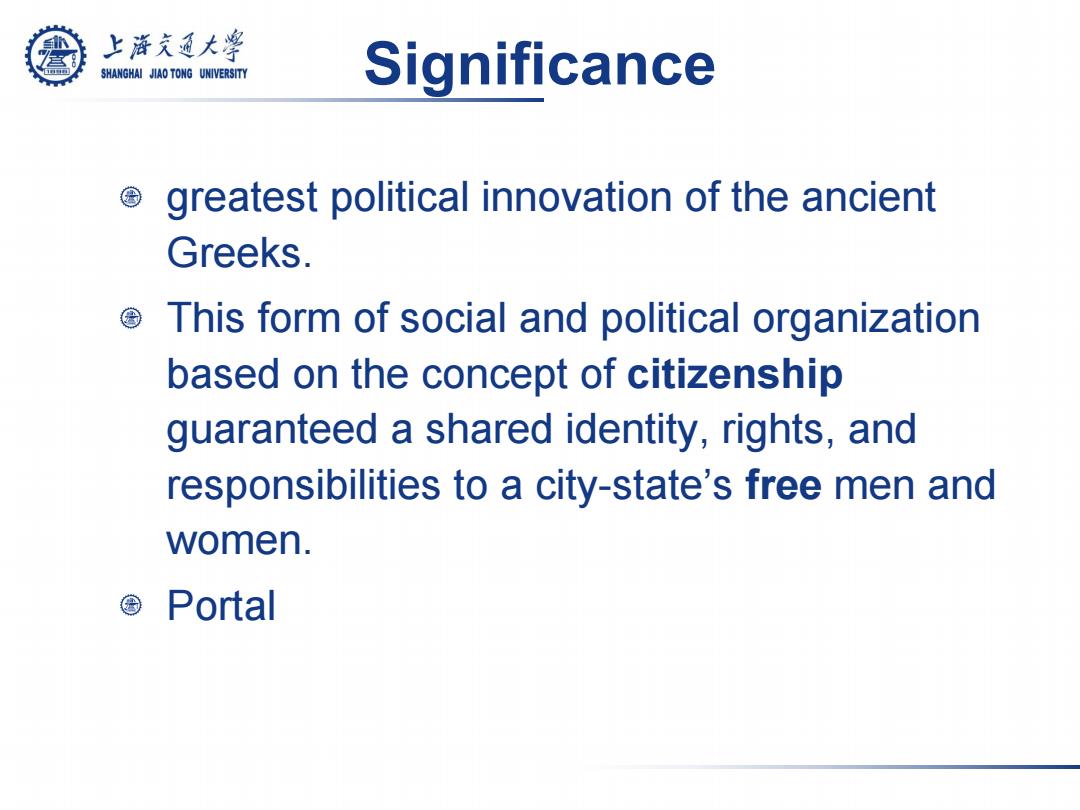
上游充通大兽 SHANGHAI JIAO TONG UNIVERSITY Significance greatest political innovation of the ancient Greeks. This form of social and political organization based on the concept of citizenship guaranteed a shared identity,rights,and responsibilities to a city-state's free men and women. Portal
Significance greatest political innovation of the ancient Greeks. This form of social and political organization based on the concept of citizenship guaranteed a shared identity, rights, and responsibilities to a city-state’s free men and women. Portal
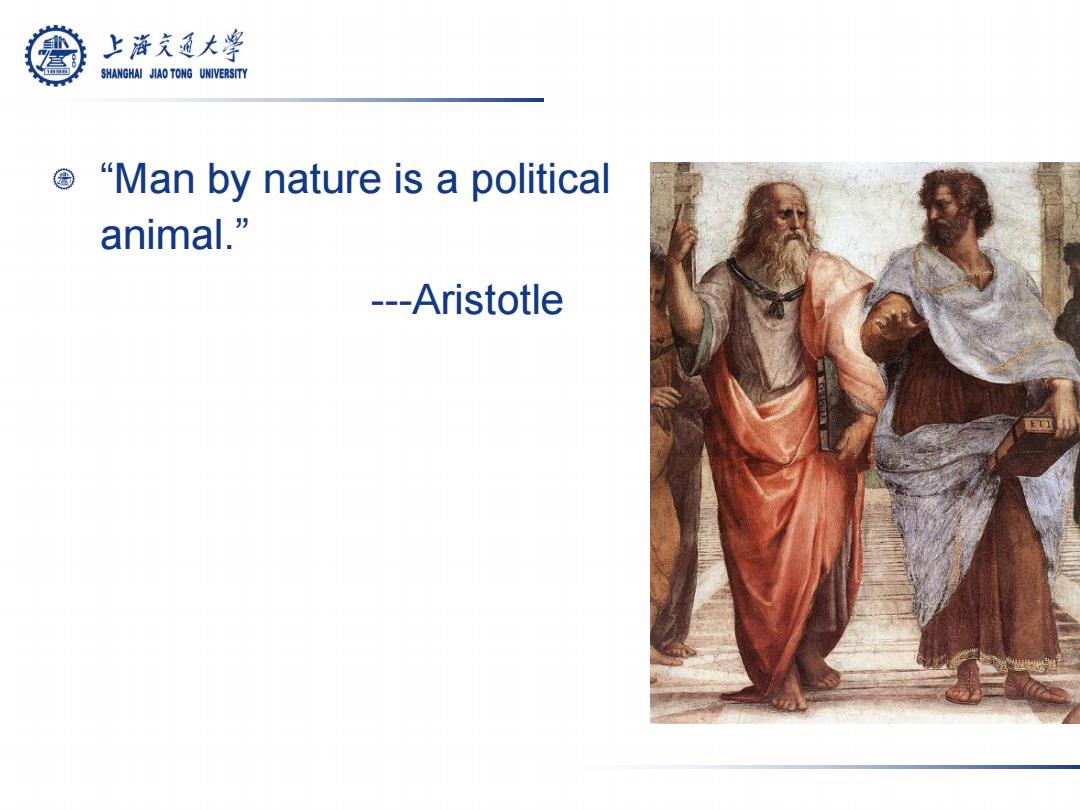
上游充通大兽 SHANGHAI JIAO TONG UNIVERSITY "Man by nature is a political animal.” ---Aristotle
“Man by nature is a political animal.” ---Aristotle
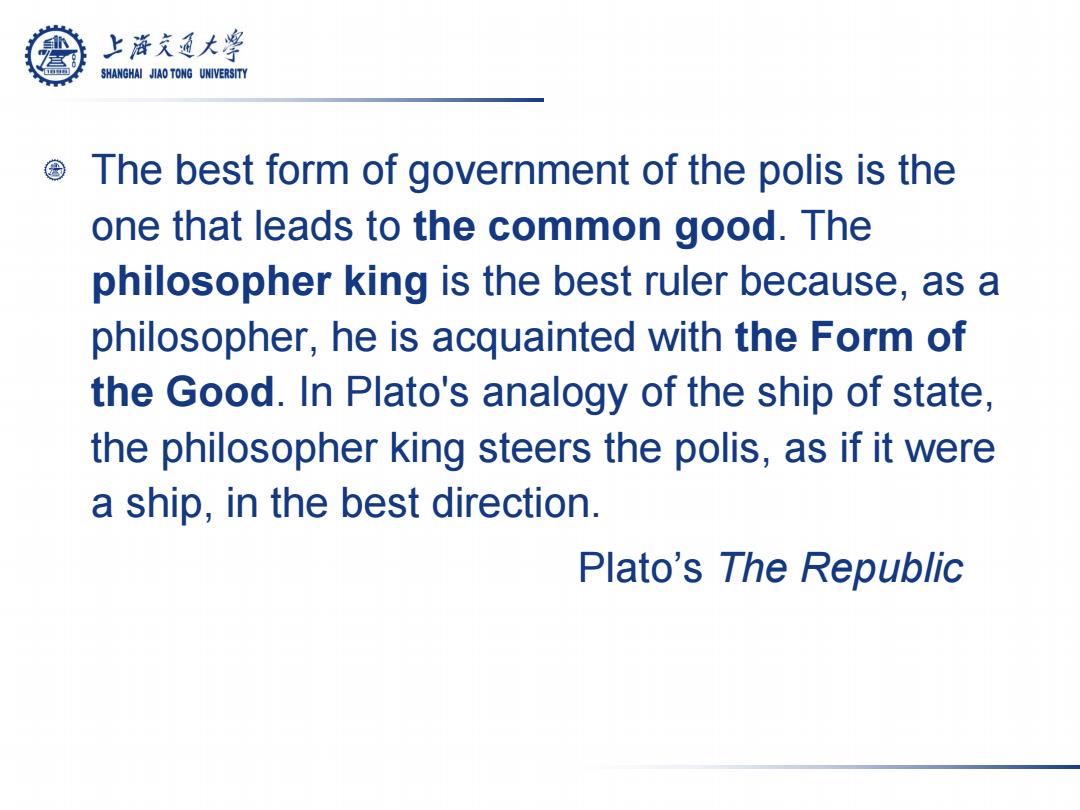
上游充通大兽 SHANGHAI JIAO TONG UNIVERSITY The best form of government of the polis is the one that leads to the common good.The philosopher king is the best ruler because,as a philosopher,he is acquainted with the Form of the Good.In Plato's analogy of the ship of state, the philosopher king steers the polis,as if it were a ship,in the best direction Plato's The Republic
The best form of government of the polis is the one that leads to the common good. The philosopher king is the best ruler because, as a philosopher, he is acquainted with the Form of the Good. In Plato's analogy of the ship of state, the philosopher king steers the polis, as if it were a ship, in the best direction.Plato’s The Republic
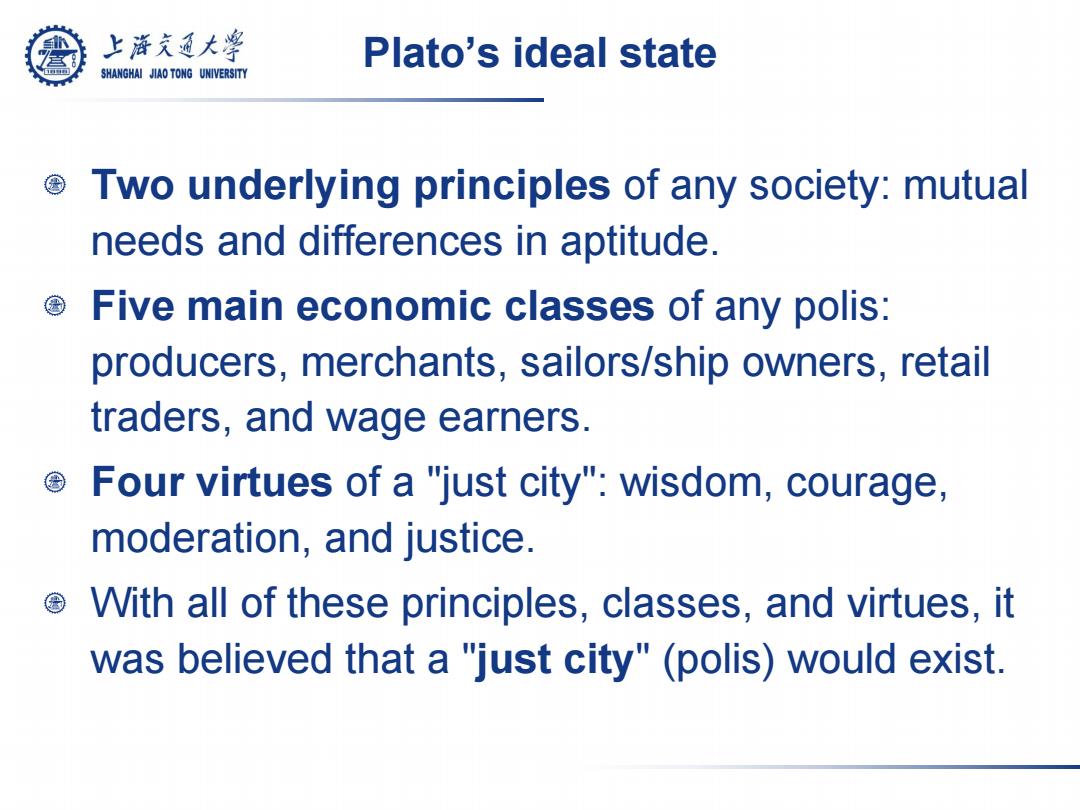
上游充通大兽 Plato's ideal state SHANGHAI JIAO TONG UNIVERSITY Two underlying principles of any society:mutual needs and differences in aptitude. Five main economic classes of any polis: producers,merchants,sailors/ship owners,retail traders,and wage earners. Four virtues of a "just city":wisdom,courage, moderation,and justice. With all of these principles,classes,and virtues,it was believed that a "just city"(polis)would exist
Plato’s ideal state Two underlying principles of any society: mutual needs and differences in aptitude. Five main economic classes of any polis: producers, merchants, sailors/ship owners, retail traders, and wage earners. Four virtues of a "just city": wisdom, courage, moderation, and justice. With all of these principles, classes, and virtues, it was believed that a "just city" (polis) would exist